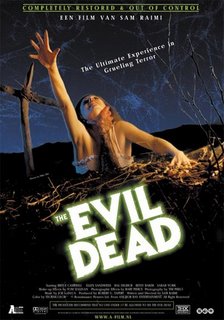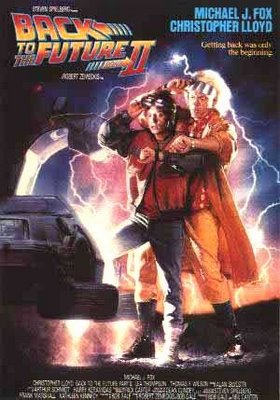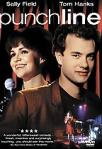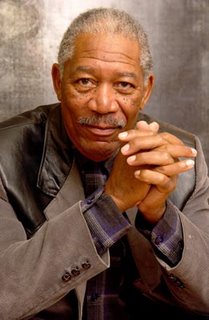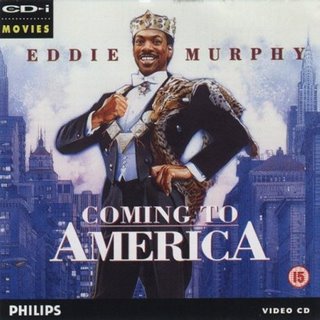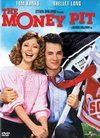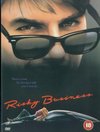 Directed by:
Directed by:Paul Brickman
Starring:Tom Cruise
Rebecca De Mornay
Joe Pantoliano
Tom Cruise stars in this eighties comedy classic as Joel Goodsen, a straight arrow hell-bent on getting into a good school (Princeton) so he can major in business and make beaucoup bucks, a stereotypically eighties mindset; like Gordon Gekko says, “Greed is good.” However, early on, we, the audience, are clued into to the fact that Joel is unhappy with the track his life is on. While he is sitting in a diner eating with his friends, he asks, “Don’t any of us want to do something other than just make money?” to which his friends all reply, “Make money.”
Joel’s life veers off its carefully constructed path soon as his parents leave town. Heeding the sage advice of his friend Miles to just say “fuck it” and go buck wild, he does just that. Once his parents are gone, we see Tom Cruise in the scene even people who haven’t watched the movie recognize: him sliding across the hallway in his socks and underwear, lip-synching “I Like That Old Time Rock ‘n’ Roll.” Although this scene does the necessary task of cueing the audience Joel intends to cut loose, I could do without seeing Tom Cruise seizing spastically in his tighty-whiteys. (This scene, also, is perhaps an early warning sign Oprah should’ve noted: Tom Cruise hates couches…and he’s insane.)
Things get complicated for Joel when Lana (Rebecca De Mornay), an escort he hired, shows him a good time. “That’ll be $300,” she says the following morning. But he can’t pay. He only has fifty, having blown the other $75 his parents left him on paying off a black transvestite hooker, Miles hired for him. Unable to pay, Joel rushes off to the bank, but when he returns Lana is gone, as is Joel’s mother’s crystal egg. Even though the egg is tacky as can be, apparently it means a lot, is worth a lot.
Joel and Miles go to confront Lana about the missing egg, but instead wind up rescuing her from her pimp, Guido, played marvelously by Joe Pantoliano. They then take Daddy’s Porsche on a high-speed chase through town, Guido nipping at their bumper. [What's with the racial slur against Italians, anyways, Brickman? You didn't call Joel, "Joel Honkey." You called him Joel Goodsen--hmm...Goodsen--"Good son," a bit ham-handed, don't you think?]
Things spiral out of control from here. But in the process, Joel and Lana form a romantic bond. (How predictable; how cliché. The hooker with the heart of gold. And the hooker with the—never mind, that train of thought is a bit too vulgar for a class assignment; it was such a good rhyme, too; oh, well. We encounter this theme in another eighties classic,
Pretty Woman, which is later revisited in the nineties in
Leaving Las Vegas and in the 00s in
The Cooler).
Culminating Joel’s descent into hell, he rolls Pop’s Porsche, which he wasn’t supposed to be driving to begin with, into a lake. Oopsy-doodles. This motif, the wrecking of the patriarch’s expensive wheels, occurs in
Ferris Bueller’s Day Off as well. However, unlike,
Risky Business, in which the sinking of the Porsche mirrors Joel’s sinking future, having been suspended from school and having plunged his GPA to unsalvageable depths, in
Ferris the Ferrari breaking through the glass symbolizes Cam’s breaking away from his father’s control.
To pay for the repairs, Lana convinces Joel to open a one-night brothel. He does. The money flows in. During this orgiastic section of the film, a recruiter from Princeton visits Joel. They had a meeting, he says. So, in the midst of the chaos, they attempt to conduct the meeting, though hookers and horny teenage boys continually interrupt them. Eventually, Joel, proving just how changed he has become, says, “Fuck it,” and sends Mr. Princeton on his way. (Later we find out Princeton has inexplicably accepted Joel; thanks for showing the recruiter such a good time, ladies).
About fifteen more minutes of screen time happens after this, including the madcap struggle to put the house back in order before the folks get back, but telling Mr. Princeton off is the climax of the movie. This is where Joel accepts his fate. “Looks like University of Illinois,” he says. This is where Joel learns that you don’t have to take a rigid path to be successful. You can make money and be happy, a sentiment echoed in the final line of the film, when Joel voices-over, “In one night I made $8,000.” This closing message, while still tethered to the eighties mindset of financial success, does stray slightly by telling the audience you don’t need a suit & tie, or a Princeton MBA to be "successful."
The final verdict: I'd give this movie a 6 on a scale of 1-10. It kept me awake and engaged even after I had gotten off a long shift at work, which is no easy feat. If you haven't seen it, it's worth a one time watch, but not many more.
Peace out, yo.
View trailer here:
http://www.imdb.com/title/tt0086200/trailers
